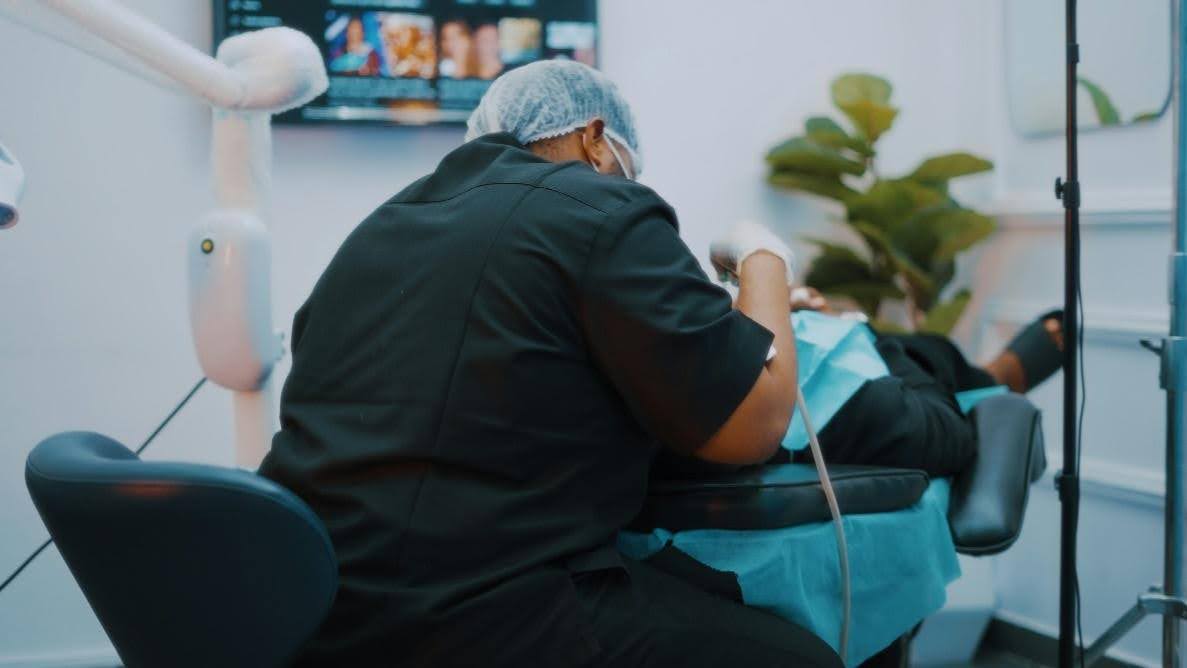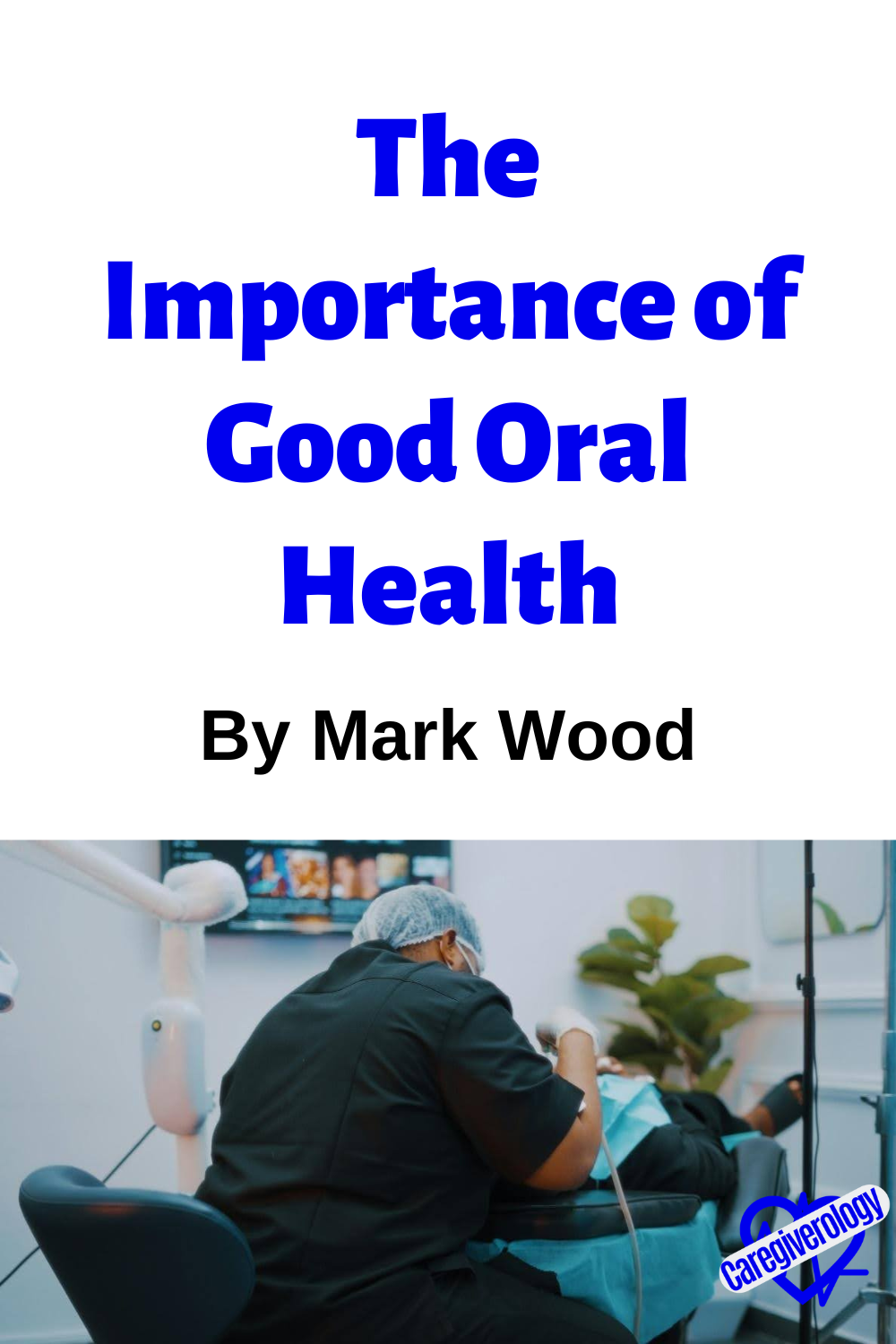The Importance of Good Oral Health

Maintaining good oral health is vital for overall well-being. From preventing dental diseases to boosting self-confidence, oral hygiene plays a crucial role in our lives.
This article explores why good oral health is essential and how it impacts our daily living, especially for residents of Houston, Texas.
Oral Health and General Well-being
Good oral health goes beyond having a bright smile; it significantly affects your overall health. Poor oral hygiene can lead to various dental problems, such as cavities, gum disease, and bad breath. These issues, if left untreated, can escalate into more severe health conditions.
For instance, gum disease has been linked to heart disease, diabetes, and respiratory problems. Bacteria from the mouth can enter the bloodstream and affect the heart, causing inflammation and potentially leading to heart attacks.
Similarly, oral infections can complicate diabetes management, making it harder to control blood sugar levels.
Moreover, oral health affects your daily life in other ways. Pain from toothaches or gum infections can be debilitating, making it difficult to eat, speak, and concentrate on tasks. It can also lead to low self-esteem and social anxiety, particularly if you are self-conscious about your breath or appearance.
Therefore, maintaining good oral hygiene is crucial for both physical and mental health.
Regular visits to the dentist are a cornerstone of good oral health. Seeing a dentist every six to eight months helps detect problems early and provides timely treatment. A professional can offer personalized advice on how to maintain oral health, which is invaluable in preventing future issues.
Look up Dentist Houston on any search engine to find a reliable, experienced dentist in your location.
Remember, these visits are essential in catching potential problems before they become serious, saving both discomfort and money in the long run.
Daily Oral Hygiene Practices
Practicing good oral hygiene daily is fundamental to maintaining a healthy mouth. Brushing your teeth at least twice a day with fluoride toothpaste is an essential yet effective practice. Fluoride helps to strengthen tooth enamel and prevent decay, making it a necessary ingredient in toothpaste.
Equally important is flossing, which removes food particles and plaque from between the teeth and under the gumline, areas that a toothbrush cannot reach. Neglecting to floss can lead to plaque buildup, resulting in cavities and gum disease over time.
For residents of Houston, where dietary habits might include a variety of sugary and spicy foods, diligent oral hygiene practices are particularly important.
Using mouthwash can also be beneficial. It helps to rinse away food particles and bacteria, freshens breath, and provides additional protection against cavities and gum disease.
However, mouthwash should not be used as a substitute for brushing and flossing but rather as a complementary practice.
Diet plays a significant role in oral health as well. Consuming a balanced diet rich in vitamins and minerals, particularly calcium and vitamin D, helps maintain strong teeth and gums.
Limiting sugary snacks and beverages is also crucial, as sugar promotes the growth of bacteria that cause tooth decay and gum disease.
Finally, staying hydrated by drinking plenty of water supports saliva production. Saliva is essential for neutralizing acids produced by bacteria in the mouth and washing away food particles, thus protecting the teeth and gums.
Impact of Oral Health on Quality of Life
Oral health significantly impacts one's quality of life. A healthy mouth allows you to eat a variety of foods, contributing to better nutrition and overall health. It also enables clear speech and a confident smile, both of which are important in personal and professional interactions.
On the other hand, poor oral health can have a profound negative effect. For example, tooth loss or severe decay can limit your ability to chew food properly, leading to nutritional deficiencies.
It can also cause chronic pain and discomfort, affecting your ability to concentrate at work or enjoy daily activities.
In Houston, a city known for its vibrant social scene and diverse culinary offerings, having good oral health can enhance your enjoyment of local attractions and events. Whether you're dining at one of the city's renowned restaurants, attending a cultural festival, or simply socializing with friends, having a healthy, confident smile can make a significant difference.
Additionally, oral health affects mental health. Issues such as bad breath, stained teeth, or noticeable cavities can lead to self-consciousness and social withdrawal. This, in turn, can contribute to anxiety and depression.
Therefore, maintaining good oral hygiene is not just about physical health but also about feeling good about yourself and being able to fully participate in social activities.
Preventive Measures and Community Health
Preventive measures are key to maintaining good oral health and, by extension, overall community health. Public health initiatives in Houston have made significant strides in promoting dental health awareness and providing access to dental care for underserved populations.
Community programs that offer free or low-cost dental checkups and treatments are crucial in preventing widespread dental issues.
These programs often include educational components that teach children and adults about the importance of oral hygiene, proper brushing and flossing techniques, and the impact of diet on oral health.
Fluoridation of public water supplies is another effective preventive measure. Fluoride has been shown to reduce the incidence of tooth decay significantly, making it a simple yet powerful tool for promoting oral health on a large scale. Houston's commitment to fluoridating its water supply reflects a proactive approach to public health.
Schools also play a vital role in promoting oral health. By incorporating dental health education into their curriculum, schools can teach children the importance of maintaining good oral hygiene from a young age.
Providing children with the knowledge and tools they need to take care of their teeth can lead to lifelong healthy habits.
Workplaces can contribute to oral health by offering dental insurance and promoting regular dental checkups.
Employers who recognize the importance of dental health are more likely to see reduced absenteeism and increased productivity among their employees.
Providing access to dental care as part of employee benefits packages is a practical step toward supporting the overall health and well-being of the workforce.
Good oral health is integral to overall health and quality of life. Regular dental checkups, daily oral hygiene practices, and community preventive measures all play vital roles in maintaining a healthy mouth.
For residents of Houston, the benefits of good oral health extend beyond individual well-being, contributing to a healthier, more vibrant community. Prioritizing oral health is a worthwhile investment that pays dividends in physical health, mental well-being, and social confidence.
So, whether you're visiting a dentist or practicing good dental hygiene at home, remember that taking care of your teeth is an essential part of taking care of yourself.
Thank you Mark Wood for contributing this article.
Guest Articles Written for Caregiverology
From The Importance of Good Oral Health to Home
Recent Articles
-
Lifestyle Medicine Explained: Guiding You Back to Better Health
Apr 20, 25 09:51 AM
Did you know that 80% of chronic diseases—like heart disease, diabetes, and obesity—are preventable through lifestyle changes? Yet, many people rely solely on medication rather than addressing the roo… -
What to Expect During Post-Operative Recovery at Home - Caregiverology
Apr 08, 25 08:21 PM
Surgery may be over, but the journey to full recovery is just beginning, and for many people, the hardest part happens after they leave the hospital. -
How to Plan for Aging: Financial, Health, and Lifestyle Considerations
Mar 29, 25 12:40 PM
Did you know that 70% of people over 65 will need some form of long-term care? Yet, many delay planning until it’s too late. Aging is inevitable, but how we experience it depends on preparation.





New! Comments
Have something to say about what you just read? Leave a comment in the box below.